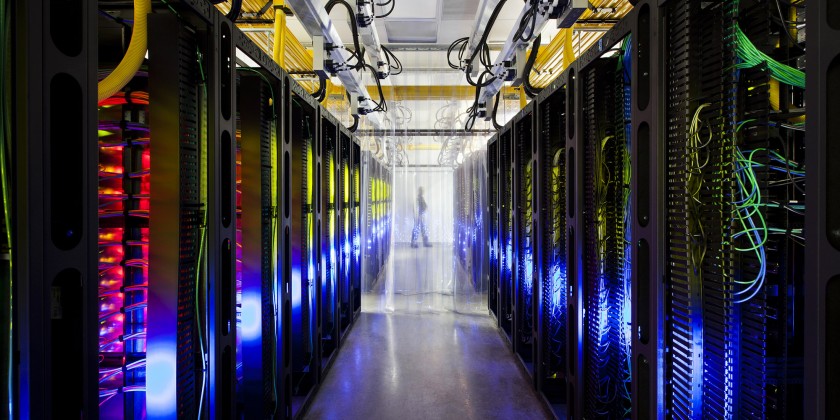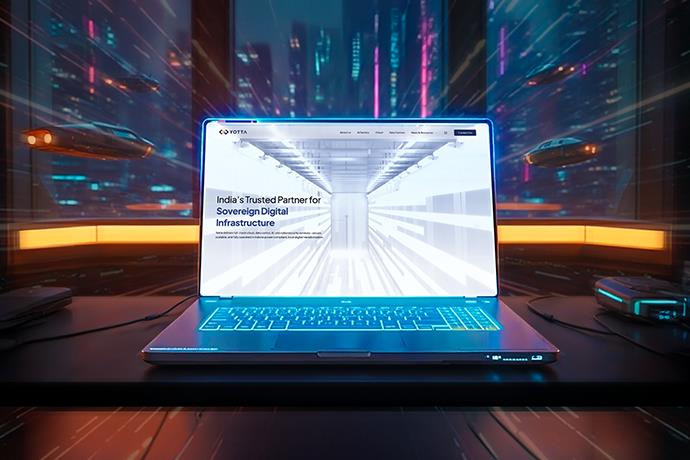Resilience Cloud Services
Dec 12, 2025
Published on May 12, 2020

As a managed data center service provider, Yotta Infrastructure has the vision is to create an ultra-scalable, hyper-density data center ecosystem ready for the future growth of data. As a part of the Hiranandani Group, Yotta represents a trinity of real estate acumen, data center expertise, and power generation capability.
Here, Sunil Gupta, Managing Partner and CEO, Yotta Infrastructure, talks about the future of work. Excerpts from an interview:
DQ: How are you dealing with the Covid-19 situation? What plans have you put in place?
Sunil Gupta: For businesses still operating, there is plenty of workplace stress due to COVID-19, from adapting to new working arrangements, moving critical infrastructure online, keeping customers and employees informed about business continuity and much more. We are experiencing a change in so many facets of life from family to work and society.
Since the lockdown, at Yotta, we have tried to maintain regular communication with our employees through daily catch up calls, we have provided tech support to the team so that they can conveniently work remotely and keep the operations running. We also have various employee engagement activities to motivate the team and cut down stress levels. To ensure that we are always connected to our stakeholders, we organise different webinars on topics that would interest different groups – right from a fitness session with a celebrity to industry discussions on CIO priorities.
DQ: Are you giving employees more control over their schedules?
Sunil Gupta: Even before this crisis, as an organisation, at Yotta everyone can set their work timings; and during these times as well they are free to do so. Trust and transparency are some values that we strongly believe in as an organisation.
DQ: How are you assessing on learnings from enforced experiments around WFH?
Sunil Gupta: Being an IT/ITeS company we already had remote working policies, however that was need based. With a compulsory work-from-home scenario due to lockdown, it has been business as usual for us. We are ensuring that our employees make the maximum out of this lockdown and enhance their skills. Employee engagement activities for us has been high than ever, activities like exercising, reading, meditation and more are gamified to make it more exciting.
Besides, we are conducting learning sessions from experts and have setup our own LMS portal for everyone to enhance their knowledge and skills. This will be a continuous process even after lockdown and we will continue to invest in building our people’s skill and knowledge.
DQ: This is a challenging time for managers. What advice would you give them?
Sunil Gupta: Remote working is a necessity in the new normal age of COVID-19. It is difficult to manage a team remotely and create a productive atmosphere that comes with traditional in-office relationships. Giving clear objectives and regular updates will help ensure employees maintain focus, energy and a sense of purpose. It is the manager’s responsibility to make sure that the team has the technology it needs to communicate and get the work done.
As the situation around creates significant disruption, managers need to redouble their recognition efforts. Managers must understand that their teams have a lot going on, trust your team, give them the freedom and flexibility to deliver their assignments.
DQ: How does work/life balance work in a crisis like this?
Sunil Gupta: Maintaining a work-life balance has always been difficult for working professionals. Now, with work from home being a norm, the fight has never been more real as you can work as per your convenient timing. It is essential to prioritise your tasks and allot time slots for each task. Define your work hours and make sure you stick to it. Motivate your team members to indulge in fitness to keep their mind and body, active and focused. Most importantly, do not overstress. These are unprecedented times, and each day we learn something.
DQ: What are the policy responses that you would give to the MSMEs and SMEs?
Sunil Gupta: Small businesses are the worst affected during any crisis, and for a pandemic like this, establishments of all sizes are struggling to align with the current economic scenario. The only option left for MSMEs or SMEs is to either scale down their operations to ensure they do not exhaust their cash reserves or halt operations to not run out of funds. Next six months are going to be crucial for them as they would have to take some measures to revive their business, and the government would need to support them with payroll subsidy, PF statements, tax reductions wherever possible and offer an extension on bill payments for services such as power, water, etc.
DQ: How are you now facilitating digital work?
Sunil Gupta: We ensure that we sync up with every employee to understand if they are facing any difficulties working from home – right from any technical assistance to even any personal matter where we could offer help in any capacity. Besides, we have all the right collaboration and communication tools which makes everyone accessible on a click. We also are ensuring that our employees are vigilant about Phishing attacks while working from home and have ensured all endpoints are protected and secured.
DQ: How are the latest technologies going to redefine workplace?
Sunil Gupta: Technology in the workplace has taken leaps due to the pandemic. This has allowed companies to make a shift from legacy setups to adopting emerging technologies and digital collaboration tools if they were not doing that already. Digital transformation for specific sectors has now accelerated. Cloud computing plays a vital role in making the virtual workplace a success. Instead of relying on traditional in-house storage, cloud storage provides scalability and 24×7 accessibility from anywhere.
Digital security has never been more critical than it is today; cyber-attacks are at their peak. One of the effective ways to tackle the situation is to move towards ‘Zero Trust Approach’. Virtual Assistants (VAs) may become a norm in the coming years. Gartner predicts that 25% of the digital workplace will incorporate digital assistants by 2021. Also, using team collaboration apps and secure group messaging system is now becoming common for internal communication, and the coming months will only see more such digital aids being adopted.
DQ: How do you plan for a future of ‘decent digiwork’?
Sunil Gupta: As the pandemic has confided everyone to their homes, the sudden change to remote digital work has accelerated the digital transformation of the workplace. COVID-19 may prove to be a catalyst that has brought the evolution of the work environment to ‘work anywhere’. But, the lockdown had an adverse impact on the labour workforce.
According to the Centre for Monitoring Indian Economy, the unemployment rate fell to 21.1 per cent as of 26th April. The effect of COVID-19 on labour workforce must reduce. Decent digiwork is about creating opportunities for everyone to participate fully in a future of digital work that affords self-respect and dignity, security and equal opportunity, representation, and voice.
Besides, as a technology company, we endeavour to provide the organisations, digital platform, and solutions for their business to ensure continuity and be secured at the same time.

Resilience Cloud Services
Dec 12, 2025

Yotta
Dec 11, 2025

Cloud
Nov 13, 2025
Artificial intelligence and high-performance computing are transforming how the world works. Every company today is becoming a computing company, driven…